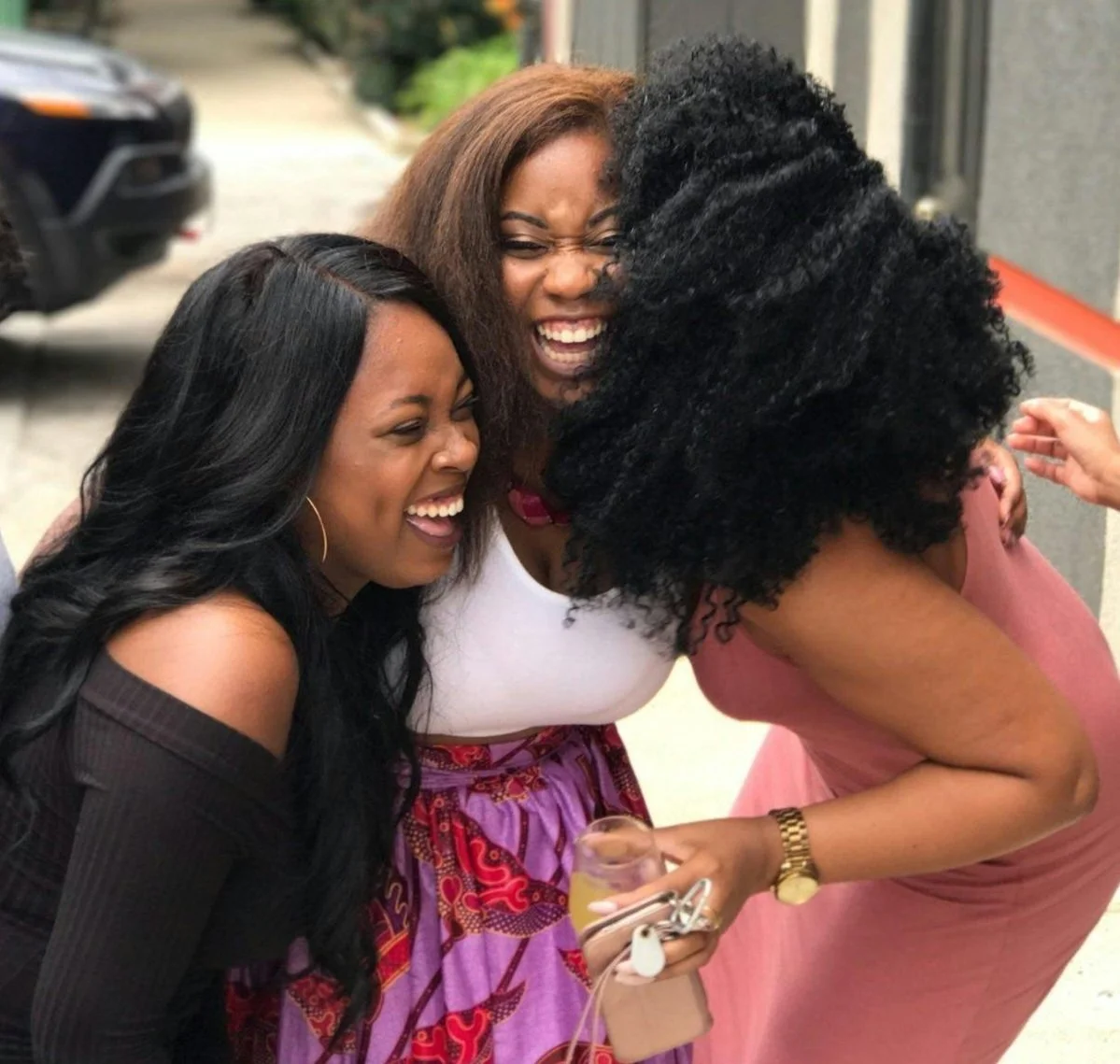
The Blog—Real-life riffs on anxiety, resilience, and being fully present
Looking for the blog? You found it—let’s dig in
I’m Victoria Wallace Schlicht—California-licensed Marriage & Family Therapist and certified Somatic Experiencing® Practitioner—something like a nervous-system whisperer minus the white cowboy hat..
I help anxious, high-functioning adults ditch the “I’m broken” story and find steadier ground. Let’s be honest, nearly everyone you know has either experienced high anxiety or brushed up against it—and how could we not? We’re living in a world that’s spinning faster than we were built to handle. Over-functioning is wearing us out.
We need better tools and a fresh perspective. Good news: I’ve got a stack of both, and I love to share them.
Welcome to my bully pulpit. Each post unpacks the science, stories, and somatic hacks that tame anxious spirals, increase self-regulation, and build real resilience.
Ready for deeper work? Get the scoop on my all-online California practice here.
Feeling Trapped:a Symptom of Anxiety
How High-Functioning Anxiety and People-Pleasing Keep You Stuck and boundaries can set you free
Key takeaway: Feeling stuck or overwhelmed by obligation? This article explores how anxiety-driven overfunctioning and unclear boundaries can leave you feeling trapped—and how clarity, self-awareness, and healthy limits can set you free.
Overwhelmed, stuck, and out of options?
Tomas Tuma-unsplash
Life offers us a variety of experiences over time. Sometimes we find ourselves in situations where we feel there is no way out. That we have to do a certain thing, or do life in a certain way, or show up and be a certain way. Truly, some situations are much more complex and difficult to maneuver than others, but for many of us it is also the black and white, self-limiting story we tell ourselves about how it has to be. In situations like this, not only are we stuck and trapped, but we are our own jailer.
When you hold the key yet still feel caged by anxiety
Only there is a problem. We are the problem. We are the jailer. We are the cage. We are our own worst nightmare when it comes to moving towards freedom. Our anxious thoughts are there to dog us every step of the way. Telling us why we have to do it and do it exactly the way we're doing it. Why we can't change. Why it is impossible to say "no". Why we need to consistently put others wants, desires, and needs over our own. In our anxious habit, we get stuck in not knowing how to set boundaries, not knowing how to say, "No," not knowing we can. In fact, often we don't even need to be asked. We are leaping out and volunteering, taking it on, and winning the day. We can have no idea what we want and need, other than to take care of others and be liked and valued for our ability to do so. After all, this is what loving caring people do, right? Or so we tell ourselves.
You hold the key to freedom from burnout: boundaries
Daryn Stumbaugh_unsplash
Here's the thing, we do enough of this often enough, for long enough, without any sense of what is actually appropriate, and we end up overextended, exhausted, trapped by our own willingness, burdened, resentful, blaming, sometimes feeling martyred and taken for granted. Sucks. Big time. The good news? While, yes, we are our own jolly jailer, we not only hold the key, we are the key. It's just a matter of figuring out what makes that lock fall open.
Real freedom starts with healthy boundaries
When we are operating in our anxious states of being, even the idea of establishing a boundary and saying "no" can be extraordinarily uncomfortable and anxiety producing. It feels like we absolutely have to act, have to fix the situation, have to manage the moment. Not having learned a healthy way to deal with this anxiety and stress, we take care of ourselves in the most effective way we can. We do. We act. We fix. We 'help," whether we have been asked to or not. We manage tasks, things, events, and people. I mean, how can we not help? We're so damned capable! We have an "If I could, I should" model of living, regardless or our actual capacity to continue to take on more. It takes an extraordinary amount of energy and requires more than a little hubris, but many of us will happily try and shoulder managing the whole world or at least our little corner of it. Definitely our people. It's no wonder those around us sometimes think we're controlling.
Why caregiving becomes self-soothing (and fuels burnout)
Rachel-unsplash
Acting on what we feel needs to be done does relieve our anxiety in the moment. That's also part of the problem. As a result, our self-soothing through taking action is a self-reinforcing behavior. It also exhausts us. Ultimately pulling us deeper into exhaustion and our downward anxiety spiral. Our lack of appropriate boundaries for ourselves and others can lead to discord in our relationships, because guess what? It doesn't always feel good to be helped. It definitely doesn't feel good to be managed or controlled. In fact, it's irritating and obnoxious. Displeasing. This is the precise opposite of what our anxious self is trying to create in our world.
It’s okay to help—until helping crosses into anxious overfunctioning
What often starts out as the brilliant and successful coping strategy of a bright and observant child in a chaotic or anxious environment, morphs over time into the thing that is running us and limiting us. Knowing how to help and please may have saved your emotional or physical ass back in the day, but now runs you into the ground. If our parent was particularly scattered, needy, or emotionally demanding, it can leave us with no real sense of ourselves and what is appropriate to offer or not.
Healthy boundaries: the missing key to anxiety reduction
It's not that it's not okay to help. It is. It is also essential we understand our own limits, know how to stay in our own lane and not be up in someone else's business, and learn what is a healthy and appropriate offer or request for help. How much of either is too much? When we are trapped in our own anxious self-soothing through our over-functioning mindset, it all feels essential and urgent and as if there is no choice left to us. We feel compelled.It can feel like taking charge is the only option. We feel trapped.
Bishka Nguyen—unsplash
Learn to create freedom by saying “No” without guilt
Feeling into your own wants, needs, and preferences is the essential developmental work of individuating and moving forward into adulthood in our culture. Sometimes, this normal, natural, essential work has been disrupted by the circumstances we grew and matured in. We've developed a lot of wonderful skills, some of them as a result of our sometimes extraordinary ability to feel into others and problem solve, and now we need to do the work of feeling more deeply into ourselves. In the process of learning ourselves at a deeper level, we can end up momentarily feeling self-absorbed and selfish.
Prioritizing your needs: the discomfort that leads to growth
If it's never really been okay to prioritize yourself, so this will be very uncomfortable. Learning ourselves, knowing ourselves at a deeper level, we can end up momentarily feeling self-absorbed and selfish. If it's never really been okay to prioritize yourself, so this will be very uncomfortable. Learning ourselves, knowing ourselves, feeling into what is a healthy boundary for ourselves, our own behaviors, and what we accept or tolerate in the behaviors of others towards us is the slow, incremental work of self-development. It is work that often benefits from the mentorship and guidance of a trusted helper. This. This self development, this stepping into knowing ourselves deeper, and sorting through our decisions, wants, dreams, needs. This is the depthful work of good therapy and the creation of a life more free from shouldering unquestioned obligation and worry. It's there for the taking. More peace. More ease. More happiness in your primary relationships. More freedom. It's yours to have.
Brooke Cagle-unsplash
Next steps to freedom: online anxiety therapy for Californians
Getting a better sense of yourself, learning how to set appropriate boundaries with yourself and others can set you free and open life up. This is the work of therapy and the kind of work we do in my practice every day.
Ready to trade exhaustion for ease? Book a free 15-minute consult and learn how online therapy across California can help you set boundaries and feel lighter—no commute required
I help people who feel bad feel better. Let’s talk. Learn about online anxiety therapy in California.
Boundary Issues & Anxiety
Poor boundaries can keep high-achieving adults stuck in anxiety and burnout. Discover how online anxiety reduction therapy helps you set limits and feel lighter.
How Online Therapy Helps High-Functioning Adults Set Healthy Limits
Key takeaway: Anxious overfunctioning often leads to poor boundaries, resentment, and burnout. Learn how anxiety-driven people-pleasing develops—and how clear boundaries can reduce stress, restore balance, and support authentic connection.
pexels-elevate
Healthy boundaries: your best tool for anxiety relief
You've heard about boundaries, right? I mean, we are always talking about boundaries, but I'm not too sure we understand the term fully. Or its power to create better and more fulfilling friendships and relationships. Good boundaries hold the power to improve our lives across the board. Or to herald a better and deeper understanding of ourselves, our own preferences, needs, and dreams. Experience life with more ease and less anxiety.
Why boundaries fuel personal growth
Raphael Mittendorfer-unsplash
Essentially, boundaries are how we train ourselves and others about how to behave. Boundaries allow us to build more satisfying relationships and even to stay in healthier relationships with some of the most difficult people we love. Boundaries create safety and greater satisfaction in our relationships.
Boundaries allow us to feel less chaotic, less stressed, less overburdened, and less alone. Boundaries are how we teach ourselves and others, "This far and no further." It's how we establish our limits and our preferences. Ultimately, boundaries are the Gold Standard in both self-care and in cultivating our self awareness regarding our own behaviors in interactions with others. Good boundaries allow our relationships to be more enjoyable and far less exhausting. Engaging in relationships becomes energetically sustainable again.
Learning to say “No” without guilt
I often teach clients about boundaries, saying, "Good fences make good neighbors." No, we don't want to wall ourselves off from others, but we do want to create healthy expectations and learn a healthy "No" or "That's enough." response when appropriate. We want to understand and have our associates understand the manner in which we want to be spoken to or treated. How much emotional and physical space we require? What is appropriate to request and expect from us in terms of help, support, a listening ear, and tolerance for poor behavior?
Janko Ferlic—unsplash
When childhood coping becomes adult people-pleasing
Often, due to the way we were raised or the experiences we have had in life, we don't know ourselves well enough to know what we need. Or we feel what we need is to make sure everyone around us is happy and everyone around us is pleased by our behavior and responses. We have not only lost track our needs, but our needs consistently take a back seat to the needs of others. It can feel like this is actually the way it is supposed to be. It may feel like it has always been this way.
In truth, for many of us, this has been the way it's been since we were toddlers. Sometimes, our chaotic or painful family systems felt like they required us to feel into the needs of the adults around us and do what we could to meet those needs. It makes sense. It's a safety first issue of survival and the highly intelligent or emotionally intelligent child is going to sense this and act on it. Good thing, too. These anxious coping strategies can serve us well in childhood and bring us through safely to the other side. The thing is those brilliant strategies of childhood do not serve us near as well as adults.
From caring to over-giving: anxiety’s hidden cost
Based on our experiences, over the years we may have morphed into people pleasers. People pleasing always arises from our anxious coping strategies. It helps us feel accepted. And safe. Especially safe. We developed the people pleasing habit to keep ourselves safe. And valued. This results in our not knowing what our needs are, where we end and the next person begins. It's nearly impossible to set healthy boundaries when we don't know our own needs. We may not even know what we prefer or how to make decisions that are self-valuing. As a result we can end up feeling inauthentic, unknown and unseen, and perpetually overextended, exhausted, and resentful. It's not a lot of fun. Sometimes it can mean we're not a lot of fun to be around, either.
Stay in your lane: boundaries for less stress & more energy
Tim Gouw—unsplash
Our unconscious boundaries and lack of boundaries are a huge personal development challenge. For ourselves, we need to understand what's our business and what's not. Just because we care about someone or have an opinion about them, their lives, and what we think they think of us or expect from us, doesn't mean any of that is actually our business. Or our job.
As an individual, your job is to know and understand yourself. Know, understand yourself and what you need in life and how to fulfill those needs in a healthy manner. It's actually not your role--not your healthiest role--to be a caretaker for everyone around you. It's not your job to know what everyone else needs and make sure you make that happen for them. That's their job. That's their personal work and area of personal growth. Get out of the way and let them have at it.
Boundary Work = burnout prevention for busy professionals
When we are trapped in our anxious experience of ourselves, it can feel like we have to act. There is no choice. That is your anxious mind lying to you, right there.
Doing the work of learning how to establish healthy, functional boundaries is a huge stress reliever. Everything in life will feel easier and more fulfilling, particularly your relationships, when you have established and are maintaining good boundaries. Life gets easier.
Better relationships start with better limits
pexels
The truth is, moving through this deep personal work, the hard work of boundaries, most often requires the support and mentoring of a trained helper. Our weak and permeable boundaries are so close to the core of who we perceive ourselves to be that it can be impossible to notice the issue on our own, let alone effectively address it.
When we stop overextending ourselves in our relationships, at home, in our friendships, and in our business relationships, then work and relationships become more satisfying, less exhausting, and less burdensome. Life feels immeasurably lighter—in your heart, in your mind, and in your body. When everyone takes care of themselves, gives and receives support relatively equally, then we are all more satisfied in life. Relationships become more enjoyable and much less stressful over time. We can learn boundaries and learn to be happier.
Online therapy in California: master boundaries from home
Happiness is definitely the learning curve we want to be climbing, isn't it? Fortunately, help is available. You can access online anxiety therapy from anywhere in California. Ready to turn stress into spaciousness?
Book a free 15-minute video consult and learn how online therapy can help you build rock-solid boundaries—no commute required.
I help people who feel bad feel better. Let’s talk. Learn about online anxiety therapy in California.












